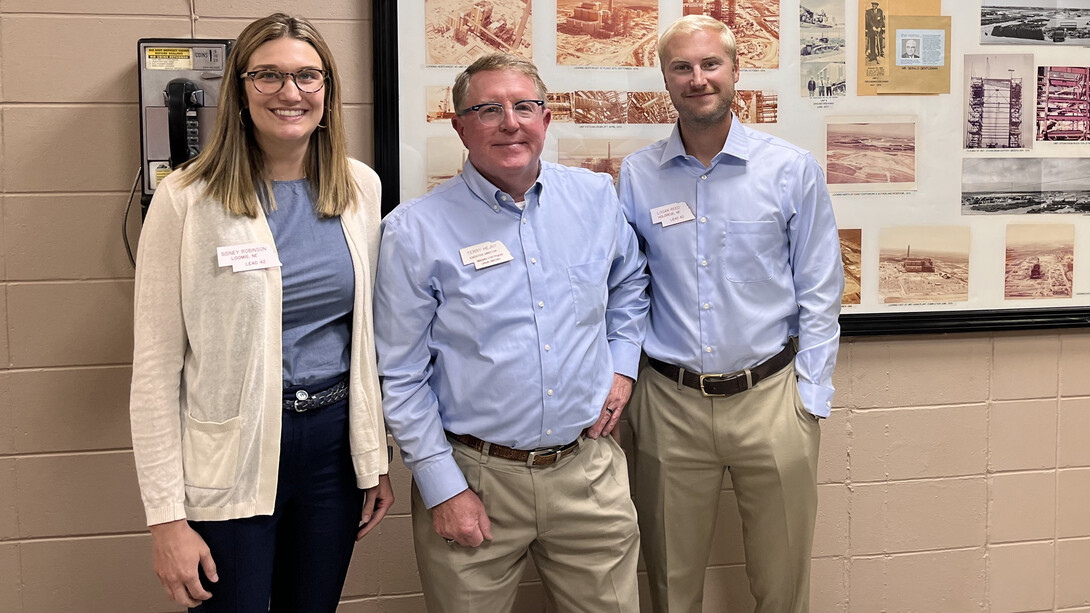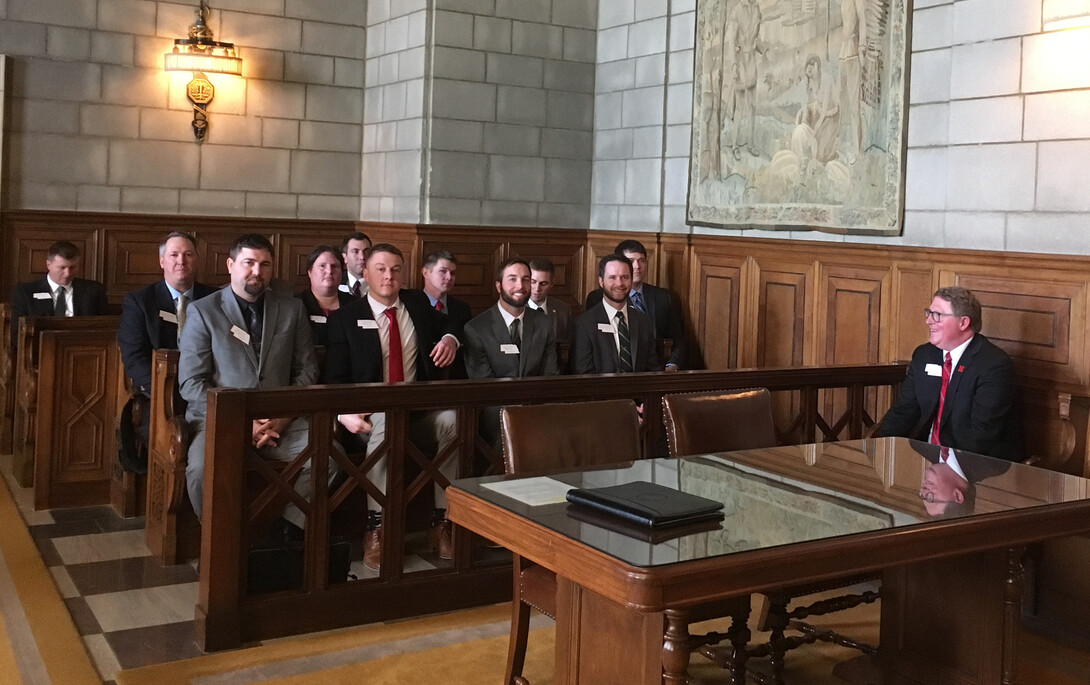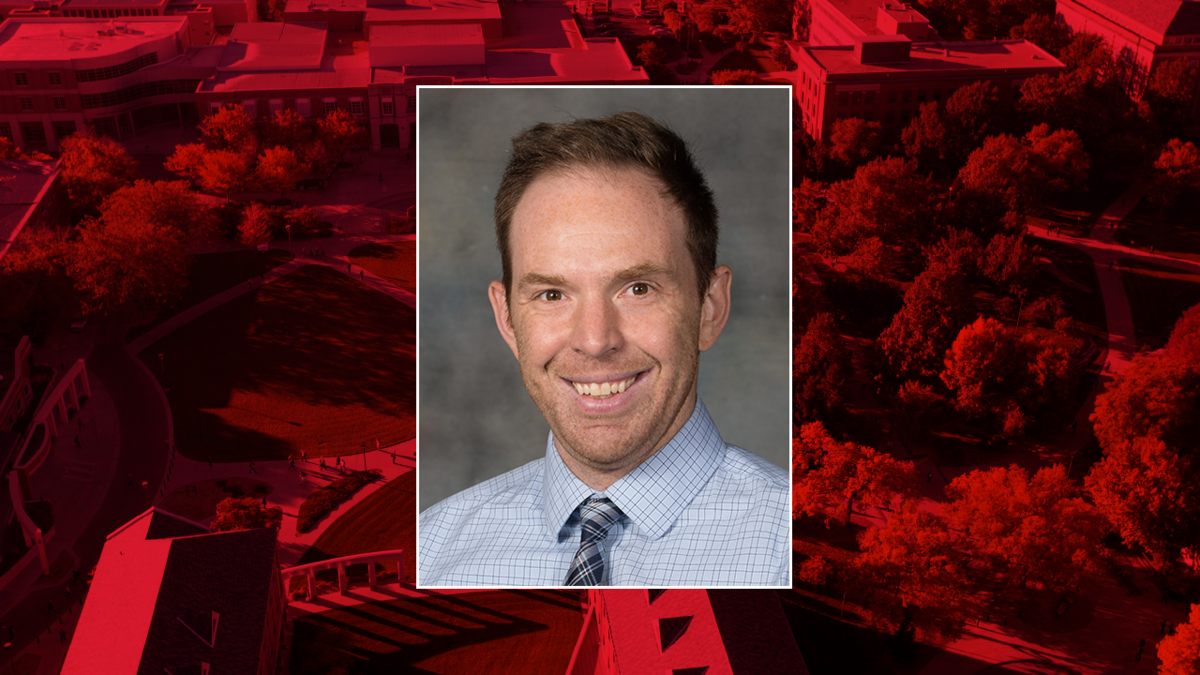
For the past 17 years, Terry Hejny has regularly traveled Nebraska, from the Missouri River to the Panhandle, on an important mission. As director of the Nebraska LEAD Program, he spearheads activities and experiences that help LEAD fellows understand the breadth of the state, preparing them for future leadership in agriculture and agribusiness.
“I always say that LEAD is a transformational travel and experiential development program. It’s full of experiences and opportunities,” said Hejny, who grew up on a diversified crop and livestock farm in Seward County and has headed the program since 2007.
The two-year LEAD experience includes detailed looks at Nebraska’s agriculture, economics, health care, education, community development and government, and includes travel to Washington, D.C., and overseas.
“We have something for everyone,” Hejny said. “We help them become passionate about issues and where they want to put their advocacy as they go through this program.”
LEAD, a part of the University of Nebraska–Lincoln’s Institute of Agriculture and Natural Resources, has been in place since 1981. Over the decades, its alumni have gone on to provide important leadership in production agriculture and agribusiness, including on grower associations and commodity boards, as well as on town councils, school boards, natural resource district boards and the State Legislature.
LEAD’s 12 in-state seminars over two years are “the building blocks of the program,” Hejny said. The sessions take LEAD fellows to every region of the state and help them understand Nebraska’s diversity in topography, climate, economics and culture. Those experiences encourage an important sense of connection and understanding among Nebraskans.
“That is a key thing that has made our program successful,” Hejny said. “We connect people.”
Hejny, who was a member of LEAD 20 class during 2000-02, will retire from his LEAD director position at the end of June. He also will retire as president and chief operating officer of the nonprofit Nebraska Agricultural Leadership Council, which governs the LEAD program in cooperation with IANR and support from 13 other institutions of higher education throughout the state.
A retirement reception for Hejny will take place from 2 to 4 p.m. May 9 in the Nebraska East Union, in the third-floor Prairie Suite. Husker faculty, staff and students, as well as LEAD graduates and anyone else who would like to wish him well, are invited to attend.
Hejny’s greatest satisfaction has been working with so many talented Nebraskans over the years and seeing LEAD Fellows develop their leadership skills.
“I’ve been blessed to have those experiences to see that personal and professional development happen,” Hejny said. “It’s a beautiful process.”

The decades of support from IANR have been particularly important for the program, he said.
Hejny, who earned a bachelor’s degree in agricultural education from UNL, feels a strong connection to LEAD’s tradition due to his ties both to the program’s founding director, James Horner, and his successor, Allen Blezek. Both were faculty members in UNL’s Department of Agricultural Leadership, Education and Communication.
Horner’s class on program development helped Hejny understand principles he’s used throughout his career as a high school agriculture teacher in Geneva, Extension educator in Fillmore and Cass counties, and LEAD program director.
Similarly, he said, “I learned everything I needed to know about how to teach from Professor Blezek.”
After becoming LEAD director in 2007, Hejny earned a doctorate in human sciences with a specialization in leadership studies. What are the elements of constructive leadership? It’s a long list, Hejny said, but five key components are integrity; trustworthiness; instilling a sense of ethics; fairness; and ensuring transparency.
“Leaders have to model those behaviors,” said Hejny, who also was a high school coach. “They always represent high standards, high expectations.”
LEAD stands out for the breadth of support it receives from institutions, communities, corporations and individuals across the state.
“That’s what makes me feel very blessed,” Hejny said. “That support means that people have ownership of the program, which means they want it to succeed.”
Mark McHargue, president of the Nebraska Farm Bureau, said the LEAD Program “stands as a top leadership development initiative in the state for agricultural stakeholders, fostering well-informed, ready and enthusiastic leaders from various sectors of the agriculture industry across Nebraska.”
The farm bureau has long been a steadfast supporter of the program, McHargue said.
“I appreciate Dr. Hejny’s guidance in steering this vital program over the last several years,” he said. “His legacy will endure through the service and leadership of LEAD graduates from across Nebraska for years to come.”
Kelly Brunkhorst, executive director of the Nebraska Corn Board, said Hejny “has continued to build upon the foundation of his predecessors in expanding the LEAD program into the premier leadership program across the state. It is a model for other states to build upon.”
As his retirement from LEAD approaches, Hejny is working with the program’s staff members Shana Gerdes and Irene Malzer to enable a smooth transition for his successor.
“Dr. Blezek had it ready to roll when I took over,” Hejny said, “and I’m going to do the same thing for the next person.”







